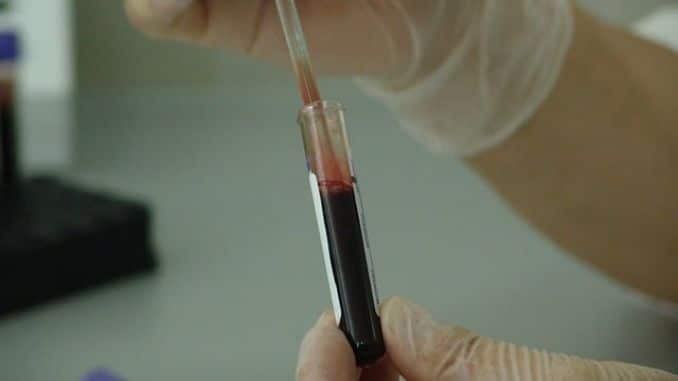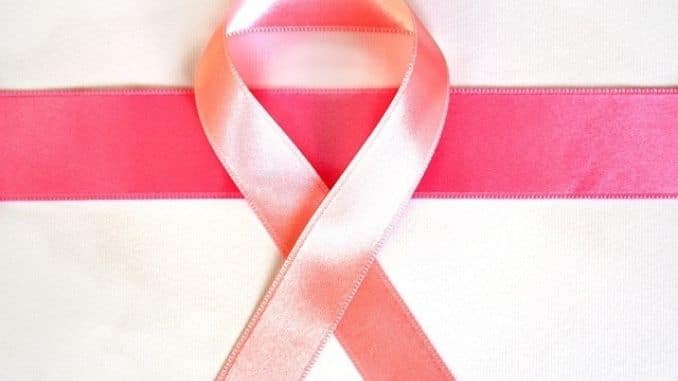
How Can I Restore My Health After Herceptin Treatment for Breast Cancer? One of our readers recently asked us about recovering from treatment with Herceptin. This individual had received the treatment every three weeks for a year and was struggling with post-treatment pain, fatigue, aches and more. The question was: How can I rebuild my health?
Below, we look at the side effects that Herceptin can create and offer some tips for optimal recovery.
What Is Herceptin?
Herceptin (trastuzumab) is an immune therapy used to treat certain types of breast cancer. The United States Food and Drug Administration (FDA) first approved it in 1998 for treating metastatic breast cancer with an overexpression of the human epidermal growth factor receptor 2 (HER2) gene. Here’s what that means:
- The cancer has spread: Herceptin is used to treat breast cancer that has spread beyond the breast tissues to other areas of the body.
- The HER2 gene is stimulating too much growth: In certain types of breast cancer, some breast cancer cells have too many copies of the HER2 gene. These genes make proteins called “HER2 receptors,” and these receptors send out signals to the cells to grow and multiply more than they should. The result is abnormal cell growth, breast tumors, and breast cancer.
Herceptin works by attaching itself to the HER receptors and blocking them from receiving any growth signals. With the signals blocked, the cells don’t grow, which can slow or stop the growth of breast cancer. While the drug is sitting there, it also signals the immune system to come and destroy the cancer cell, providing an additional defense against cancer.
The FDA later approved Herceptin for use in people with early-stage breast cancer, alongside standard breast cancer chemotherapy. Later studies showed that combining Herceptin with chemotherapy increased 10-year survival rates from 75 percent to 84 percent among people with HER2-positive operable breast cancer.
Estimates are that about 10 to 20 percent of people diagnosed with breast cancer are HER2-positive. Only people with this unique type of cancer benefit from using Herceptin. The treatment is delivered via intravenous (IV) infusions or injections at intervals of one to three weeks. Those with early-stage breast cancer usually go through a one-year course of Herceptin, as studies have shown that one year creates better results than six months.
For those with metastatic cancer (that has spread), doctors may use a combination of treatments that include Herceptin.
What’s It Like to Take Herceptin?
As with any drug, Herceptin affects different people in different ways. We do know that certain side effects are possible, including:
- Stomach pain and back pain
- Nausea, vomiting, and diarrhea
- Headaches
- Fever, chills (usually during the first treatment)
- General aches and pains
- Insomnia
- Cough
- Infection
There are also some rare, more serious potential side effects. These include:
- Heart problems: Herceptin may damage heart cells. This is why doctors usually assess heart condition before prescribing the medication. Those with preexisting heart problems should not take Herceptin. Doctors should also continue monitoring the health of the heart throughout treatment. Some medications that can help prevent Herceptin-induced heart issues in some patients. Watch for symptoms like swelling in the ankles and legs, shortness of breath and cough. Risks are higher in those receiving Herceptin combined with anthracycline chemotherapy.
- Lung problems: Rarely, some people may experience inflammation in the lungs, fluid on the lungs, pneumonia or other similar symptoms while taking Herceptin. It’s important to check with your doctor immediately if you notice trouble breathing, cough or fluid in the lungs.
- Low white blood cell counts: This is a sign that the immune system is struggling, and the person may not be able to fight off infections.
Most people tolerate Herceptin well and do not suffer from significant or serious side effects. Even if you do have side effects, they usually go away at the end of the treatment, but some people may be left with lingering aches, pains, and fatigue, as our reader was.
How to Manage Herceptin Side Effects During Treatment
While going through treatment, take the following steps to help manage any of the mild to moderate side effects that may develop. If any side effects become too difficult for you to manage on your own, be sure to check with your doctor for help.
It’s wise to keep a pain diary. In it, record the severity of the pain, when and where the pain happens and any pain medications you take. Write down as many details as you can. Then, take this diary with you when you see your doctor. The information will help the doctor find the best treatment for you:
- Warm compresses: Use warm compresses to help ease aches and pains.
- Warm baths: Take warm baths to soothe all-over muscle pain.
- Alternative care: Consider massage or acupuncture to relieve muscle aches.
- Stretching exercises: Yoga can help stretch and strengthen muscles. Make sure the exercise is at a mild to a moderate level so that you don’t make the muscle pain worse.
- Limited bed rest: Try bed rest for a few days to let your muscles relax and recover.
- Drink fluids and get enough fiber: If your muscles are in pain, you may be less active, which can lead to constipation. Drink plenty of fluids and make sure you’re eating enough fiber.
- Eat smaller meals: Eating less at a time can help ease any stomach discomfort.
- Avoid alcohol: You can ask your doctor about this but, generally, it’s best to avoid it completely during treatment.
If you notice any of the following serious symptoms, talk to your doctor immediately:
- Shortness of breath
- Chest pain
- Wheezing or difficulty breathing
- Swelling of facial features, hives, other signs of an allergic reaction
Also, if any of the following symptoms last for more than 24 hours, contact your doctor:
- Nausea, vomiting, and diarrhea
- Swelling of the feet or ankles
- Sudden weight gain
- Signs of infection (redness, swelling, coughing up mucus, painful urination)
- Serious pain
How to Recover After Herceptin Treatment Is Over
Once treatment is finished, it may take a few weeks or even months for the side effects to lessen. Meanwhile, try these tips to ease your discomfort and increase your ability to go about your daily activities.
Ask Your Doctor About Muscle Relaxants
How Can I Restore My Health After Herceptin Treatment for Breast Cancer? If you’re suffering from serious muscle pain that doesn’t respond to over-the-counter pain relievers, ask your doctor about muscle relaxants. These can help ease your pain, and they may also make it easier for you to become active again.
Start With Modest Exercise Goals
How Can I Restore My Health After Herceptin Treatment for Breast Cancer? Once treatment is over, you may be eager to regain your active lifestyle. Pushing yourself too hard, however, can result in discouraging setbacks. Instead, set modest exercise goals. Consider doing only light exercises that will help get your heart and cardiovascular system back into shape. Some good options include:
- Regular walks
- Water exercises like water aerobics, water walking, and swimming
- Easy bike rides
- Relaxing yoga routines
- Tai chi, which can also help with balance
There is no standard rule to these workouts, and it’s important to listen to your body and not push yourself too hard. The best approach is to do the exercises you can do regularly, such as every day or every other day.
Eat a Heart-healthy Diet
How Can I Restore My Health After Herceptin Treatment for Breast Cancer? As your heart may have struggled a bit during Herceptin treatment, it’s important to give it all the nutrients it needs to repair itself once treatment is over. Choose a heart-healthy diet like the Mediterranean diet, which includes lots of fruits and vegetables, fatty fish, olive oil, eggs, cheese, yogurt, nuts, seeds, legumes, and potatoes, with limited red meat, processed foods, high-sugar foods, and refined grains.
Practice Good Sleep Habits
If you’re struggling with fatigue or insomnia, make sure you’re practicing good sleep habits. These include:
- Avoid caffeine and alcohol at least four hours before bed
- Turn off the televisions, computers, tablets, and phones at least two hours before bed
- Keep your bedroom cool and dark
- Go to bed and get up at the same time every day
- Do something relaxing and quiet in the hour before bed
- Keep naps to less than one hour
You may also want to try lavender to help you fall asleep. Use it in an aromatherapy diffuser in your bedroom or put a few drops on a cotton ball and place it under your pillow. You can also add some lavender oil to your warm bath.
Talk to a Therapist
How Can I Restore My Health After Herceptin Treatment for Breast Cancer? Sometimes fatigue and insomnia are related to feelings of stress and anxiety that may be left over from your cancer treatment. These feelings are entirely normal and need to be dealt with. A therapist can help you understand your feelings and can provide you with coping techniques that can help you to relax more.
Try Supplements for Fatigue
Some supplements may help with post-treatment fatigue. Always ask your doctor before trying them. Some options include:
- L-carnitine: It helps the body make energy and lowers inflammation.
- Ginseng: Some studies have suggested that ginseng can help lessen fatigue in cancer patients.
- Vitamin D: Vitamin D deficiency is common among patients with cancer — talk to your doctor about supplementation and try to get out into the sunshine at least 20 minutes per day.
- Astragalus root: Some studies have indicated this supplement may help with cancer-related fatigue.
Use Ginger for Nausea
If you have lingering nausea or digestive problems once Heparin treatment is over, try ginger supplements or ginger tea. Many studies have shown that ginger is effective at soothing the stomach.
Try Supplements for Pain
For lingering aches and pains, the following supplements may help:
- Turmeric: A powerful anti-inflammatory, it can help relieve pain while also protecting healthy cells in the body. Some studies have indicated that turmeric can be more effective even than aspirin at reducing inflammation, which is often the cause of pain.
- Rosemary oil: Try rubbing some rosemary oil diluted in your favorite carrier oil, like olive or jojoba, on the painful area several times a day. Rosemary helps reduce inflammation and relax smooth muscles.
- Peppermint oil: Like rosemary, peppermint oil can also help reduce inflammation and relieve aches and pains. Dilute it in a carrier oil and rub it into the painful area.
- Capsaicin: This is a popular natural pain reliever and is available in some over-the-counter muscle-pain creams.
For your guide to the best foods to help heal your body, check out The Best Foods that Rapidly Slim & Heal in 7 Days, here!






